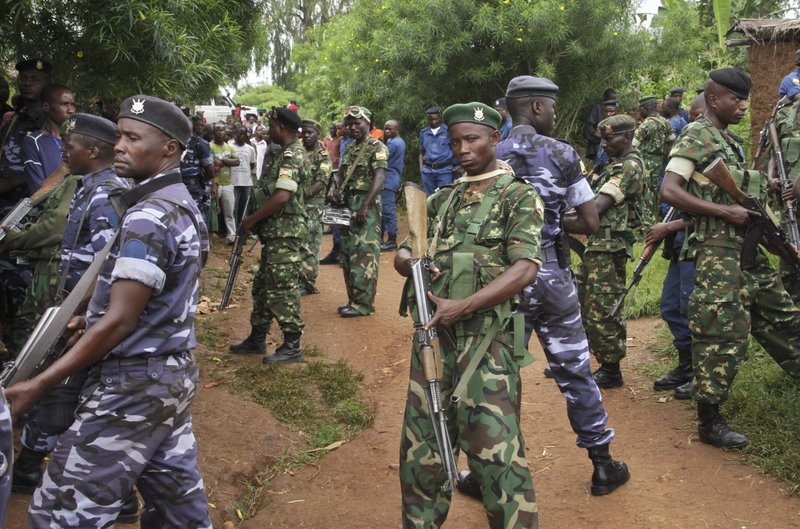26 people killed in Burundi ‘terrorist’ attack: Official
BUJUMBURA, BURUNDI: Twenty-six people were killed and seven others wounded in an attack by an unidentified “terrorist group” in rural Burundi, the country’s security minister said Saturday.
The attack came shortly before Burundians vote May 17 in a controversial referendum that could extend the president’s term. It was not immediately clear if the attack was related, although some activists said they believe it was.
Speaking at the scene, Security Minister Alain Guillaume Bunyoni told reporters that 24 people were killed in their homes Friday night and two others died of their wounds at a local hospital. He gave no further details about the attack in Ruhagarika community in the northwestern province of Cibitoke.
One survivor told The Associated Press the attackers came around 10 p.m. and “attacked households and set fire on houses.” Some victims were hacked with machetes and others were shot or burned alive, she said.
Her husband and two children were killed, she said. She spoke on condition of anonymity, citing safety concerns.
“These killers attacked my family and I am very angry,” said another survivor, Pascal Hakizimana. “My family is dead and to make matters worse, the army did nothing to save them even when they were not far from here.”
A police officer, who spoke on condition of anonymity because he was not authorized to speak to a reporter, said four of the families targeted were headed by people he called “police agents.”
“(The attackers) said when leaving, ’Where are those you trust to rescue you?” he said.
Activists expressed concern.
“This is extra-judiciary killings. What one can ask is this: Do we have to see innocent people killed whenever elections are near in Burundi?” said Gerard Hakizimana, leader of a pro-democracy civic group known as Folucon F.
President Pierre Nkuruniza, on Twitter, urged unity in the East African nation and said those who carried out the attack would be pursued and punished.
Burundi has seen deadly political violence since early 2015 when Nkurunziza successfully pursued a disputed third term. He later survived a coup attempt led by senior army and police officers, including some who fled and announced they had launched a rebel group against the government.
An estimated 1,200 people, including ruling party supporters, have died in sporadic violence since April 2015, according to the United Nations, with most of the killings blamed on the authorities and their allies.
Now Burundians are being asked to vote on a proposal to extend the president’s term from five years to seven, which would allow Nkurunziza to rule for another 14 years when his current term expires in 2020.
Campaigns ahead of the referendum have been marred by hate speech, with one ruling party official sent to prison after he called for those who oppose the referendum to be drowned.
The United States earlier this month denounced “violence, intimidation, and harassment” against those thought to oppose the referendum and expressed concern about the “non-transparent process” of changing the constitution.
Human Rights Watch has noted “widespread impunity” for authorities and their allies, including the ruling party’s youth wing, as they try to swing the vote in the president’s favor.
Many in Burundi, a poor country that still relies heavily on foreign aid, worry that a new round of bloodshed will follow the referendum no matter its results.
Already more than 400,000 people have fled the country since April 2015, according to the UN.
Nkurunziza, a former rebel leader, rose to power in 2005 following the end of Burundi’s civil war that killed about 300,000 people. He was re-elected unopposed in 2010 after the opposition boycotted. He said he was eligible for a third term in 2015 because lawmakers, not the general population, chose him for his first term.






